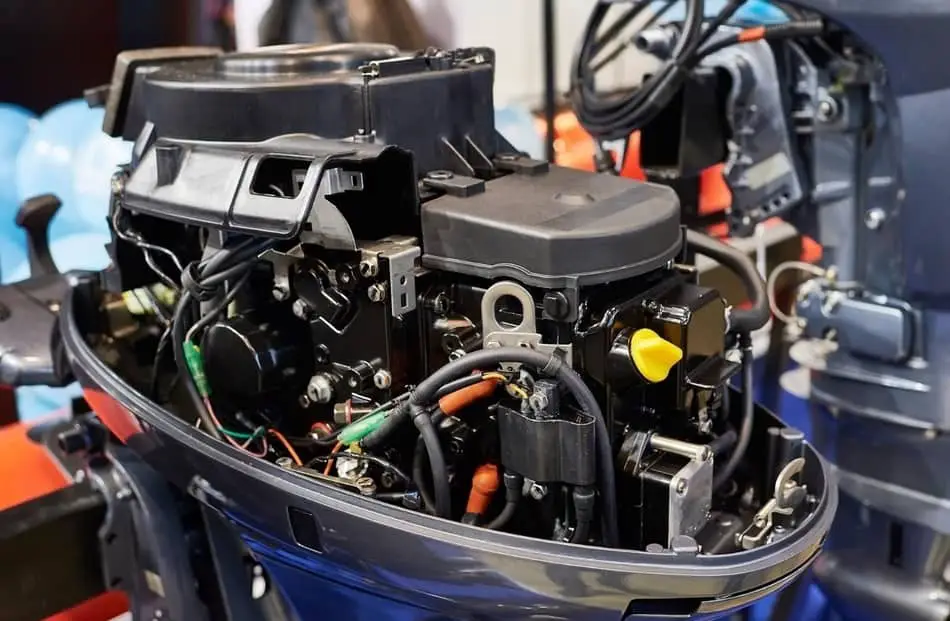The fuel pump plays a crucial role in your boat engine. If you’re attentive enough, you can catch the symptoms of a failing fuel pump and have it repaired or replaced before it leaves you stranded in the waters. So what are the bad boat fuel pump symptoms?
The symptoms of a bad fuel pump on a boat are engine sputtering at high speeds, poor acceleration under heavy loads, increased fuel consumption, increased engine temperatures, and the engine sounds rough (whine). If you see one of those symptoms, your fuel pump might be causing those problems.
NOTE – A bad fuel filter will also show similar symptoms, so you need to check both the fuel pump and fuel filter as well since a fuel pump failure will not send the fuel to the engine, and a plugged fuel filter will also not send the fuel to the engine.
A fuel pump sends fuel from the gas tank through the fuel filter to the fuel rail. From there, fuel is distributed to the injectors and sprayed into each engine cylinder combustion chamber. The fuel pump pumps the fuel, and the fuel filter filters the fuel.
If the fuel pump is not working, it won’t pump the fuel into the combustion chamber, and if the fuel filter is plugged with impurities, it won’t filter the fuel, and the fuel can’t be sent (due to plugged filter) into the combustion chamber. If the fuel doesn’t flow inside the engine, it won’t start the engine. Partial flow means problems.
So, you need to check both the fuel pump and fuel filter as well. So without further talking, let’s dive into the bad boat fuel pump symptoms.

These Are The Symptoms Of A Bad Boat Fuel Pump
Engine Sputtering (At High Speeds Or While Starting)
One of the most common causes for a boat engine to sputter while starting or at high speeds is due to the issue with the fuel system; it can be a pump, filter, or injectors. These three vital components work together to ensure fuel flows smoothly from the fuel tank to your engine.
If the engine isn’t getting enough gas, it will sputter at high speeds. It could be a clogged fuel filter, clogged fuel lines, or problems with the fuel pump. If your boat sputter suddenly and then resumes regular performance, there may be something wrong with your fuel pump.
For example, your boat could run for 10-20 seconds before it would die out. It would run strong for that few seconds or minutes and then lose power and die, indicating a bad fuel pump.
Poor Engine Performance (Under Heavy Loads)
As mentioned earlier, a bad fuel system can cause engine sputtering. In the same way, it can also decrease the engine’s performance. Under heavy loads, a bad fuel pump may randomly cause the engine to hesitate, surge, or sputter. You could see it under normal loads if the damage is severe.
That hesitate, surge, or sputter tends to be more prominent when accelerating, especially in the rough waters. Although there may be no symptoms under normal conditions, a bad fuel pump will starve the engine of the extra fuel needed when quickly accelerating.
Depending on the extent of the fuel restriction caused by a lousy fuel pump, a boat engine may also shake or stutter at different speeds. So, you won’t get as much power as you used to get if the engine is getting less gas. If you see those signs, replace your fuel pump.
Engine Sounds Rough (Whine)
Generally, hearing any weird noises coming from your engine is a bad sign, and you must take action immediately. These weird noises can be related to significant problems that could lead to complete engine failure.
Like any weird sound coming from any part of your boat, if you hear a whining sound coming from your fuel tank, this indicates an issue with the fuel pump.
During normal operations, your fuel pump would make some humming sound; however, if this sound starts to get louder and louder and more like a whining sound, this indicates either a contaminated fuel, a damaged fuel pump, or not enough fuel inside the fuel tank.
Increased Engine Temperatures
If you notice that your temperature gauge shows a continuous increase in the engine temperature followed by engine stalling, your fuel pump might be causing the issue.
High temperatures are due to a lousy fuel pump unable to provide the proper amount of gas to the engine, and the engine could be overstressed, which could cause an irregular rise in temperature.
It is important to note that the rise in your engine’s temperature could be due to multiple issues that are usually very significant. Therefore, even if you are not sure that it’s your fuel pump, you must take your boat to the nearest repair shop and get it fixed quickly.
Decreased Fuel Gauge Values
The pressure gauge indicates how much fuel is being supplied to your engine. Every boat has a specified amount of fuel that must be supplied to the engine continuously to function properly. It could cause significant problems if the engine did not get the amount of fuel needed.
The manual will tell you how much fuel should be supplied to your engine at any time. So what you can do is to have someone revive the boat while you check the pressure gauge. If the gauge shows that less fuel than what’s required, you must get your fuel pump fixed immediately.
Increased Fuel Consumption Or Low Mileage
If it seems like you’re filling up your boat more than usual, it may be because of an issue within the fuel pump. A bad fuel pump can send more or less fuel, causing the engine to overheat or more fuel consumption. If you see you are getting bad mileage, the fuel pump might be the problem.
These are some of the main symptoms of a bad fuel pump, so if you see these symptoms, replace your fuel pump or get it fixed quickly. As mentioned earlier, a bad fuel filter also causes similar problems, so check the fuel filter as well.
Bottom Line
Bad boat fuel pump symptoms are engine sputtering at high speeds, poor acceleration under heavy loads, increased fuel consumption, increased engine temperatures, and the engine sounds rough (whine). If you see one of those symptoms, your fuel pump might be causing those problems.
However, if you’re attentive, you can catch the symptoms of a failing fuel pump and have it repaired or replaced before it leaves you stranded in the waters. Though these symptoms could be sourced from a faulty fuel pump, that is not always the case, so if the issue is not resolved, better be going near a mechanic.
